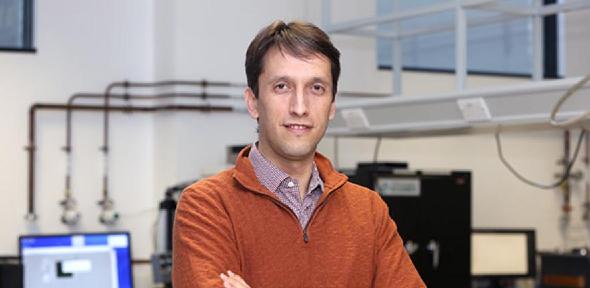
Zero-carbon refrigeration pioneer Barocal has secured a £1.3 million investment to accelerate commercialisation of its novel technology designed to cut global CO₂ emissions. As the technology also works in heating applications, the University of Cambridge spin-out now plans to explore the potential of its breakthrough for domestic and commercial heating systems—to provide a cost-effective, efficient alternative to expensive air source heat pumps.
Instead of using refrigerant gases with high global warming potential, Barocal’s technology uses new solid-state, temperature-changing materials. Cheap and non-toxic, these are organic materials that release and absorb heat at different pressures as they change volume. Known as barocaloric materials, they are more efficient than fluid refrigerants. And, as they are solids, they are more environmentally friendly and easier to recycle at the end of a product’s lifetime.
"Heating and cooling accounts for 38% of the UK’s CO₂ emissions, So the government’s commitment to a 78% cut in carbon emissions by 2035 means there is a growing need for new low-carbon domestic heating systems," Dr Xavier Moya, Dept of Materials Science and Metallurgy.
"Current alternatives such as hydrogen boilers and traditional heat pumps," he added, "are expensive and not practical for many homes. Barocal's revolutionary new heat pump, based on non-vapour compression technology, holds the promise of a cost-effective, efficient and environmentally-friendly solution for domestic and commercial heating systems as well as air-conditioning and refrigeration."
The £1.3 million investment in Barocal was led by IP Group plc. Cambridge Enterprise participated in the funding as part of a new sustainability initiative which, over the next four years, will support at least 15 of the University’s spin-outs and start-ups working on technologies that will rapidly cut emissions of global warming gases.

